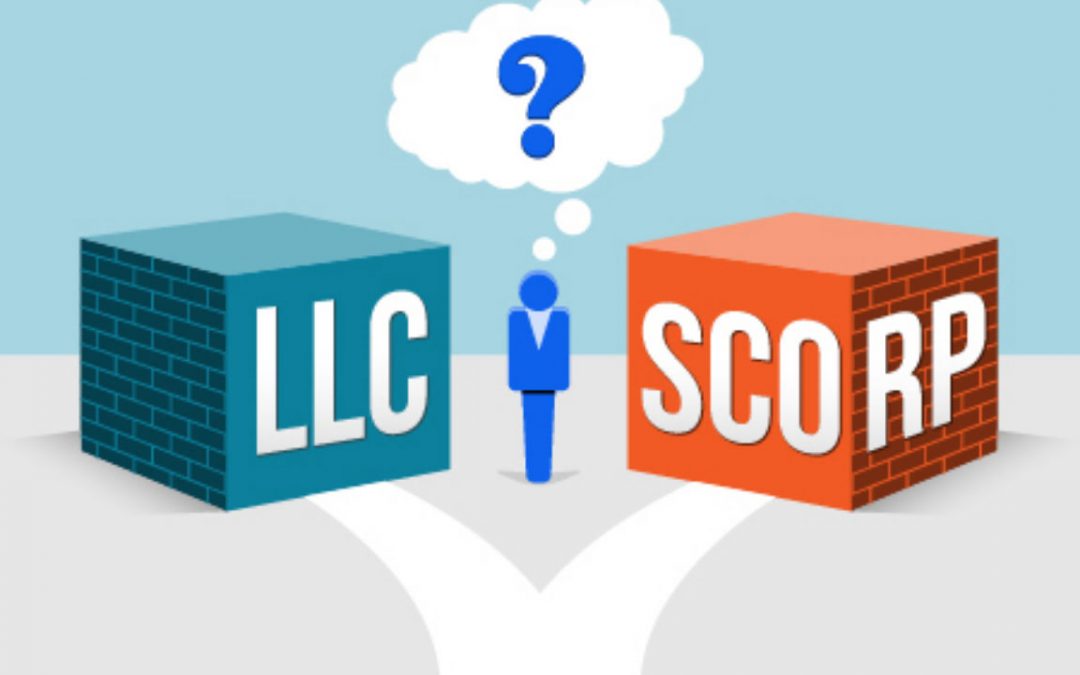Starting a small business involves a lot of different decisions to make. One of the areas most people don’t consider too much when carving out their niche is how they will represent themselves legally.
Registering yourself as a legal entity might seem light years away from your current environment, mainly if you’re working from home. Whether you’re selling homemade cupcakes, performing woodwork in your garage for home decor, or doing taxes for your neighbors, you need to educate yourself on the basics of business.
The reason to do so is twofold. Small businesses and self-employed workers pay taxes in different ways than your average 9-to-5 employee at a large company or corporation. When you’re the owner and the worker, you have different financial responsibilities as well as different write-off opportunities. There are also legal matters to consider. If you ever get into an unfortunate situation where someone is suing your business for damages, the nature of your business can determine how much protection you can expect.
There are three business structures you can undertake when venturing off on your own. All three have advantages and disadvantages to weigh before making your final decision.
Sole Proprietorship for Small Business
When you decide to start a small business, whether you’re making muffins, meatballs, or manuscripts, your business is considered a sole proprietorship. There is no paperwork to fill out to make this into a reality. In fact, the only place you’ll even see the words sole proprietorship is on your tax form the first year you pay taxes from your new business.
In financial terms, a sole proprietorship means you’re doing business under your name. You may have created a business name – like Bella’s Bakery to sell your cookies, cakes, and cupcakes in your neighborhood – but checks are written out to you, and it’s your name on every invoice. Because there is no separation between you and the business, your personal assets and your business assets are one in the same. That’s good in the sense that all the money you make from the business belongs to you. It’s not so good because you must now pay taxes on all that money as well.
Your taxable income for a small business equals your total revenue minus your expenses. Your expenses are anything you buy in the name of doing business. Expenses can include:
- Supplies
- Ingredients
- The cost of electricity and Internet services in your home office
- Startup costs
- Travel expenses
- Healthcare premiums
- The cost of looking for work (i.e., printing resumes, registering on paid job boards)
You need to keep good records of deductions and your income as well in case the IRS ever decides to take a closer look at your finances. Being a sole proprietor also means you must take care of your self-employment taxes – paying into the Medicare and Social Security pools. Together these deductions are 15.3% of your income (12.4% for Social Security and 2.9% for Medicare). If you’d rather not have the rude awakening of a big tax bill come April 15, you can estimate how much your business is likely to make in a year and pay those estimates in four installments before April 15. These payments are generally due in April, June, September, and January.
All these percentages might seem a bit overwhelming, but there is good news coming down the pipe. Starting in 2018, sole proprietorships that are considered pass-through businesses can deduct up to 20% of their taxable income. A pass-through business is one where the majority of the income earned goes straight to the owner. Therefore, if your taxable income in 2018 from your company is $100,000 after the standard deduction, you could deduct a further 20% – $20,000 – from your taxable income.
Legally, the sole proprietorship is the riskiest. Let’s say a client of Bella’s Bakery asks for a specific type of cake for a child’s party but stresses not to use nuts because of food allergies present at the party. Bella accidentally contains nuts, and several children have an allergic reaction requiring immediate trips to the emergency room. The client sues Bella’s Bakery. If the client wins the lawsuit, the court could award her compensation not only from Bella’s business income but her personal assets as well, including her home.
Limited Liability Company (LLC)
An LLC is an upgrade from the sole proprietorship, indicating that you are reaching a higher level of revenue. Transforming your business into an LLC requires several legal documents, including picking out an official name and having it approved by your state’s government. There are some costs to this process, usually in triple digits, but not rising above $500 for everything. An LLC has all the same tax benefits as a sole proprietorship and is a significant upgrade in legal terms.
Under the structure of an LLC, your business income and assets are separate from your personal income, assets, and savings. If the situation from above with Bella’s Bakery and the food allergies were repeated with Bella owning an LLC, the court could only seize income or assets from her business income. That filing would keep her personal assets 100% protected in the event of litigation.
S Corporation (S Corp)
The S Corp is the most expensive and time-consuming legal structure to set up, but it also has a significant tax advantage not shared by the LLC or sole proprietorship. If you designate your business as an S Corp, you do not have to pay taxes on all of the revenue you earn. As an S Corp, you are required by the government to pay yourself a ‘reasonable salary’ as the employee of the said corporation. There is no taxation on the rest of the revenue. For most jobs, the IRS estimates a salary around $50,000 is reasonable, so if you’re making a significant amount past that, you might consider the S Corp option. You will have to pay payroll taxes on your salary, which presently stands at 7.65%.
The downside to the S Corp as compared to the LLC or being a sole proprietor is that you cannot use the pass-through business deduction on your taxes.










